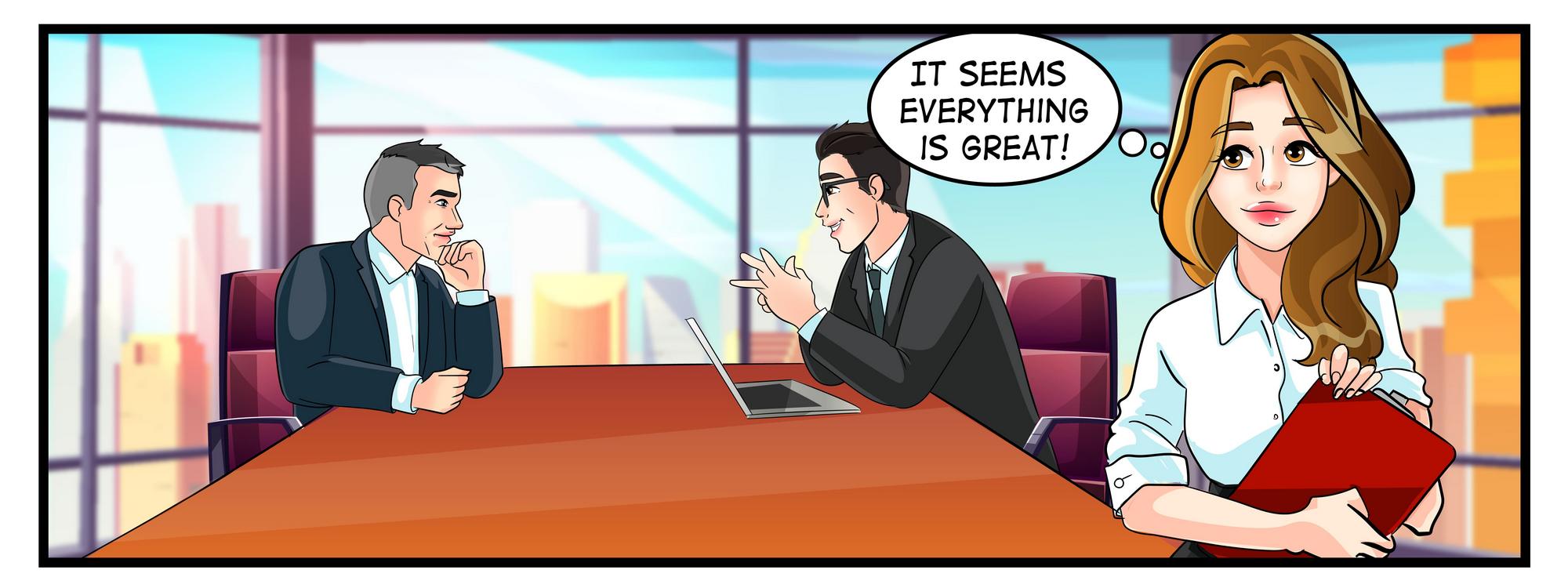How a recruiter can prepare a jobseeker for a interview with CEO

Every company has its own interview peculiarities, and it may include several stages. Among them may be an interview with the manager, when it comes to a key employee or top position. For many jobseekers, this stage causes the most difficulties. The task of the recruiter is to make the communication between both the manager and the jobseeker as comfortable as possible. If your candidate is going to have an interview with a top management, the recommendations below will definitely be helpful!
At different stages and for different positions, final interviews might be provided, on which the future of the jobseeker in the company depends. For example, this could be an interview with a department head/direct line manager, security official, head of HR department, CEO, business owners, etc.
As a rule, to such meetings they invite the candidates who will often or constantly interact with top officials – department heads who will report directly to the CEO, employees of priority, key or new areas, personal secretaries and assistants, etc. If the result of recruitment includes a successful interview with the CEO, it is better to inform the jobseeker about this straightway.
Preparation of a candidate: provision of theory and practical application

Why is the interview with the head officer given a special and such close attention? Well, firstly, because it is a head officer. And the candidates who come to him are the area of responsibility that forms the reputation of a recruiter or HR manager. Secondly, a meeting with a head officer can make a bad impression on both sides, or vice versa, go well (synonymous with “filled vacancy”). In order your candidate could get into the second stage, “theory” will be useful before the interview, namely:
- try to provide the candidate with more primary information about the company: advise him/her to study the corporate website, the company’s public strategy, read articles and press releases. Because for any head officer, his business is a pride, a brainchild, an achievement. Therefore, he will definitely react more favorably to a candidate who is also interested in the company and already has a good idea about it;
- help the candidate “dig” deeper: offer to read analytics, reviews, industry development trends, forecasts;
- introduce “in absentia” to the leader: provide the full name, outline the leadership style, management approach, value system and negotiating manners. If the top manager has some specific features, it is better to immediately warn the candidate what to expect.
Of course, highly qualified specialists can do an excellent job at the interview without “cheat notes”. However, it often happens that a first-class professional in his field has difficulties with self-presentation, may seem shut-in or vice versa – too active. A recruiter or HR can definitely iron out the wrinkles at this stage.
Of course, if the candidate does not mind, they can “practice”, namely:
- rehearse together with the candidate his/her mini-presentation. Let him/her prepare a short story about himself/herself – listen to him/her, highlight the most important points together. You do not need to memorize, everything should sound natural, specific, confident. If there were any comments to the candidate at the previous stages of the interviews, it is time to discuss them so that the applicant does not make the same mistakes during the interview with the head officer;
- together with the applicant, work out the options for answering personal questions that the head officer can ask, as well as prepare a list of questions that can (and should) be asked to the head officer;
- if such a need arises, ask to take the necessary documents, a portfolio, a successful test, if any – recommendations from former employers/customers, in brief, everything that will help the candidate feel confident, even if it is not useful;
- discuss with a jobseeker the appropriate dress code, ask not to be late, re-give instructions on how to get to the office, whom to contact for help in case of any further questions, etc.

If the director is a foreigner, a couple of important points worth discussing should be added to the general picture of preparation. For example, if the director does not speak or does not speak Ukrainian/Russian well, and the interview will be held in English/another language. Also, if the director adheres to some national/religious traditions, warn the jobseeker about this. After all, even the traditional handshake during a business acquaintance is not accepted in all countries.
What to expect from the summit meeting?
We talked to several recruiters, CleverStaff users who often “bring” their candidates to interviews with top officials, and asked them to name commonly used VIP interview formats. Here is the set:
- Regular conversation up to 15 minutes, focused more on getting to know an almost employee. Conducted at the initiative of the immediate head of the department/team lead. As a rule, it is held in a calm atmosphere, formally – for this process and the candidate, the latter has already “worried”.
- Structured interview with recruiter/HR and top manager. Such an interview can last half an hour or more, and it really needs to be “practiced” by all participants: the candidate needs to give good showing to himself/herself, the top manager needs to make a decision, the recruiter needs to help both of them.
- Situational interview. After the candidate briefly tells about himself/herself, the head officer immediately proceeds to practical issues: for example, he models the situation, and the candidate needs to extemporary, step-by-step describe how he/she would solve the problem.
- Projective interview. The head officer does not ask questions directly, but asks the jobseeker to give an expert assessment of any situation, task, idea, even a fictional character, talk about hypothetical actions in certain circumstances. The way the candidate responds/projects can be either positive or negative to him/her.
- Stress interview – if the head officer prefers a tough communication style and straightforwardness. Questions can be very different, not related to each other, relate not only to professional activities, but also to personal life. Not all candidates can handle this, and it also serves as a “filter” for the position (no matter how cynical it may sound).

In general, even the most strict, demanding and complex head officers ask approximate, very similar questions. Sometimes – even trivial and “vintage”. The difference is how the candidate answers them. Below we provide examples of popular questions and possible answers that, when reasonably adapted to the candidate, will help him/her look convincing.
| Possible questions | Possible answers |
| What can you tell about yourself? | A short confident mini-presentation, an emphasis on personal results, the ability to connect in a conversation the experience already gained and future benefits for a new company. |
| Why did you decide to consider this position? | Here, the head officer expects a concise, specific answer that will emphasize that the jobseeker is aware of the market situation and did not get into the profession by accident. You can focus on your favorite business, gaining new experience, common interests, etc. |
| Why should you get the job? | A flexible, harmless transition from “others” to their own strengths, cases, “bumps” of experience and additional profits that the company will receive. |
| What are your weaknesses? | Of course, everyone has his/her own flaws. The candidate should name a few of them, admit that he/she heroically fights with them and describe how he/she compensates for them. |
| Why did you leave your last job? What did not satisfy you? | It is better to speak positively or neutrally about the former workplace, emphasizing that it is time to move on and develop more. |
| Are you considering any other offers right now? | If the candidate really has other offers now, you can be honest about it, but emphasize the interest in this particular company. |
| What salary is satisfactory for you? | The applicant should not hesitate to name the amount that is satisfactory for him/her. If the issue has already been discussed with the recruiter, you are mentally prepared for it. If not, it is important to discuss this point, convincingly justifying the desired amount. |

It is also important to consider that all head officers are different, and can ask different questions and not always pleasant questions. There is also a special type of “top managers” that can easily confuse or put at a stand even the “experienced” ones. But one thing is indisputable: any adequate head officer is interested in worthy people coming to the company. And, of course, after all the effort put into finding and casting a relevant candidate, the recruiter is even more motivated to make sure that the VIP interview was successful. But for this you need to work closely with the candidate, if his/her psychotype or circumstances require: to give a “theory”, work together on a personal presentation, talk about possible “pitfalls and gradient currents”, reduce stress and aim for victory.